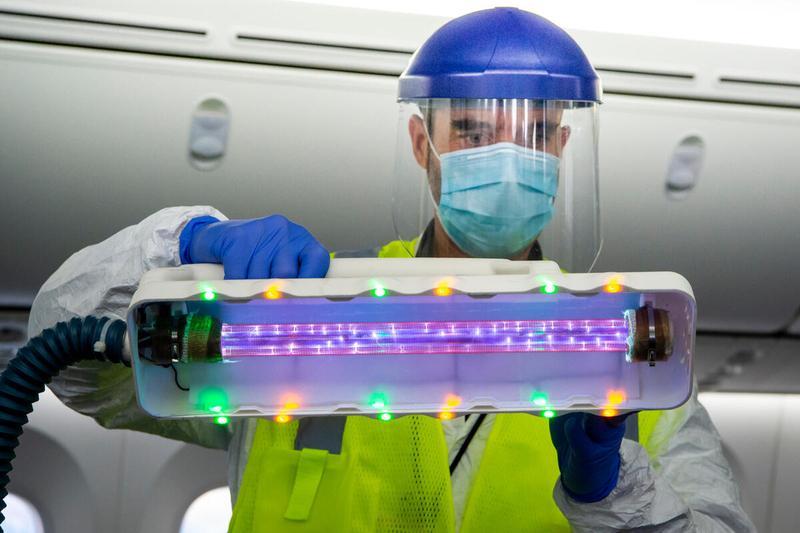
SINGAPORE—Despite numerous studies and reports on the cleanliness of passenger aircraft and the low risk of infection while aboard, the implementation of tangible and visible measures is key to building passenger confidence.
That trend will drive innovations such as inflight connectivity, anti-bacterial products and interior modifications.
Speaking on a panel at Aviation Week Network’s MRO Asia-Pacific virtual event, Boeing VP of specialty products and services Katherine Schaefer said that over the past two to six months, her team has received a growing number of enquiries about solutions for sanitizing and cleaning. Airlines are also looking to use narrowbody aircraft for leaner and more distant routes, for which they are looking at pod-style lie-flat business-class seats for privacy and protection.
Embraer is currently studying both reusable and disposable seat dividers, although there are numerous considerations. Weight, ease of maintenance and turnaround, flammability, as well as sustainability if it is disposable, are all being taken into account, according to Embraer Asia Pacific business development and contracts manager Lais Port Antunes. She said there had not been any requests from customers to convert its regional aircraft to carry cargo. Instead, Embraer has noticed that customers are using the E-jets for more passenger routes and freeing up the larger widebodies for international freight sorties.
ST Engineering VP of commercial business Tan Hean Seng said the passenger density of aircraft is unlikely to be reduced as airlines need to recover costs and will not spend unnecessarily on refurbishing interiors. Therefore, seat dividers would not only give passengers peace of mind, but could also be crucial to preventing infections during meal times when masks are removed.
Tan added that ST Engineering has developed a new anti-bacterial coating based on fusion resonance theory, which kills the bacteria before it touches the surface, thus lengthening the coating’s life to a year.
The panel agreed that while there is an industry push on touchless technology—like using own personal device for IFE—it will require some work, especially on installation of inflight Wi-Fi and USB chargers, which would incur additional costs to airlines.
Schaefer added that while most of these solutions are already available in the market, COVID-19 has accelerated innovation in how to make traveling safer and that the industry is moving itself forward for the longer term.

